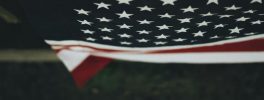
Featured Issues
The Consequences Of Pursuing Personal Autonomy
One of the most precious terms of the American Republic is liberty. This Republic’s founding documents are rooted in expressing and protecting individual freedom. In the Declaration of independence, Jefferson argued as a “self-evident truth” that we are “endowed by our Creator” with certain “inalienable rights” and among those are “life, liberty and the pursuit of happiness.” The Bill of Rights (the Constitution’s first Ten Amendments) articulates and guarantees a set of rights each citizen enjoys. “Liberty” is indeed a precious and unique dimension of this Republic. But, in 1992, Justice Anthony Kennedy, in the famous Casey abortion ruling, posited a re-definition of human liberty: “At the heart of liberty is the right to define one’s own concept of existence, of meaning, of the universe, and of the mystery of human life.”
[continue reading...]Recent Issues
View the most recent Issue below.
About IIP
James P. Eckman (Jim) is President Emeritus and Professor in Bible and History at Grace University in Omaha, Nebraska. He has been at Grace since 1983. He holds the following degrees:
- B.S., Millersville University of Pennsylvania (1969)
- M.A., Lehigh University (1973)
- Th.M. (with honor), Dallas Theological Seminary (1983)
- Ph.D., University of Nebraska–Lincoln (1989)
He has also completed additional postgraduate work at Trinity Evangelical Divinity School. He received the Charles A. Nash Award in Historical Theology while at Dallas Seminary. [Read More]
Featured Issues
 The 2025 National Security Strategy
The 2025 National Security Strategy
In early December 2025, President Trump’s administration issued its “National Security Strategy” (NSS) document. The 33-page paper is the Administration’s most complete attempt so far to explain its thinking on national security. Editorially, the Wall Street Journal observed: “Eight years ago, in his now-distant first term, President Trump laid out a national security strategy recognizing the new world of great power competition. It was a welcome effort to articulate emerging global threats. The new strategy . . . is an all but explicit retreat from that competition. It will please China and Russia but discomfit America’s allies. The strategy isn’t an isolationist document that you might read at a libertarian think tank. But it is clearly a declaration that America can no longer afford to, and shouldn’t in the national interest, bear the burden of global leadership.”
 Should The State Regulate Social Media Apps?
Should The State Regulate Social Media Apps?
In early December 2025, Australia began enforcing a ban on social media apps for children under the age of 16—becoming the first country to do so. “I’ve always referred to this as the first domino,” Julie Inman Grant, who leads Australia’s online safety regulator, said in remarks. The major platforms have “pushed back,” Grant said, in part because Australia could serve as a proving ground for an approach that has begun to draw interest elsewhere.
Culture & Wordview
 The Consequences Of Pursuing Personal Autonomy
The Consequences Of Pursuing Personal Autonomy One of the most precious terms of the American Republic is liberty. This Republic’s founding documents are rooted in expressing and protecting individual freedom. In the Declaration of independence, Jefferson argued as a “self-evident truth” that we are “endowed by our Creator” with certain “inalienable rights” and among those are “life, liberty and the pursuit of happiness.” The Bill of Rights (the Constitution’s first Ten Amendments) articulates and guarantees a set of rights each citizen enjoys. “Liberty” is indeed a precious and unique dimension of this Republic. But, in 1992, Justice Anthony Kennedy, in the famous Casey abortion ruling, posited a re-definition of human liberty: “At the heart of liberty is the right to define one’s own concept of existence, of meaning, of the universe, and of the mystery of human life.”
Ethics
 Ethical Considerations In Egg Freezing
Ethical Considerations In Egg Freezing New York Times reporter Emma Goldberg recently posted a fascinating article on the growing practice of egg freezing among women in the US. She put her report in the context of women who seek to improve themselves and who seek to slow the reproductive clock: “There is always a market for products, from skin care to weight loss, promising to ease the angst of womanhood. Efforts to slow down the reproductive clock are no different. The business of egg extraction is thriving, among the privileged group of people who can access it.”



